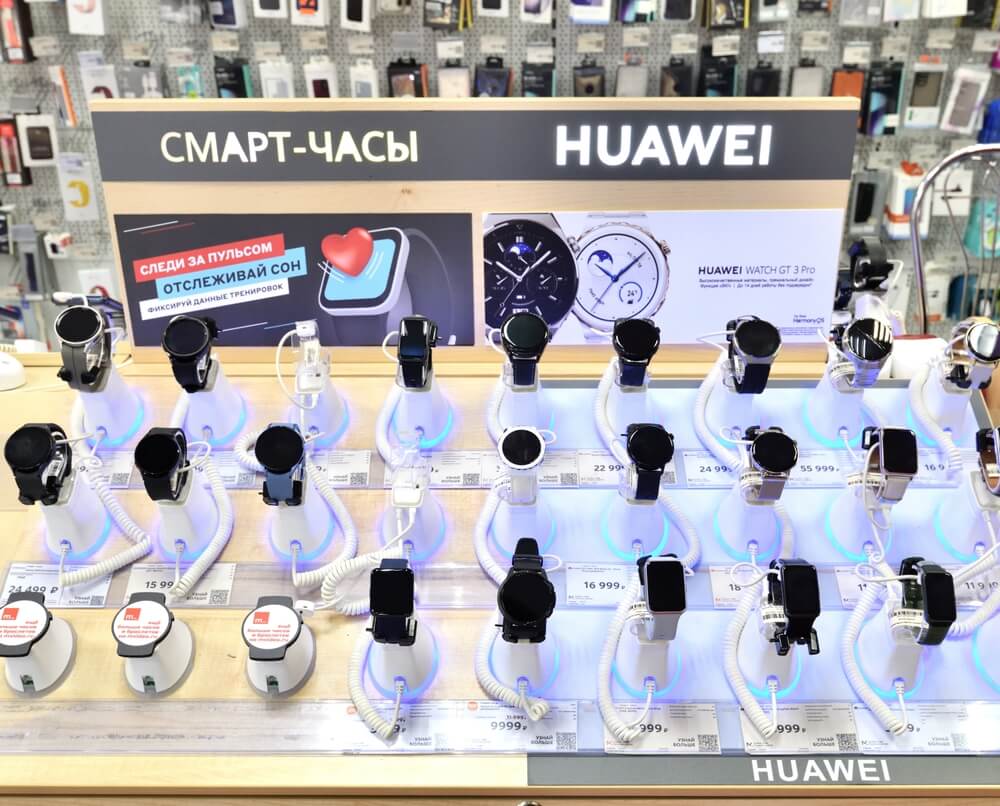In recent weeks, Russian officials have promoted the idea that once the war in Ukraine ends, Western businesses – particularly American companies – would be welcome to return to Russia.
The Trump administration has responded with interest. But how realistic is that prospect? Would Western investments and joint ventures really come back?
The Greek philosopher Heraclitus once famously observed, “No man ever steps into the same river twice, for it’s not the same river, and he’s not the same man.”
The same could be said of Russia. In the 1990s, following the Soviet Union’s collapse, Western businesses poured into the country. Over the next 30 years, these businesses invested hundreds of billions of dollars in Russia, bringing not just capital but also expertise and institutional connections. In many ways, they helped integrate Russia into the global economy.
That legacy has been largely erased. On paper, several thousand Western companies still operate in Russia, but most are little more than mailboxes or fronts for Russian business entities.
The few remaining Western firms with meaningful operations are effectively trapped: they either cannot exit the market or are being pressured to sell their assets – often at huge losses – to well-connected Russians.
Consequently, the networks painstakingly built over three decades have unraveled. Russia’s financial ties to the West have mostly vanished, and Western sanctions are squeezing strategic exports like oil and natural gas.
Although trade in commodities and “dual-use” technologies continues via third-party intermediaries, it lacks the direct hands-on transfer of expertise once provided by Western companies, which was often the true engine of value creation.
Russia is not the same river
But even if the war in Ukraine were to end and sanctions were lifted, a return of Western businesses remains highly unlikely. Russia is “not the same river.”
The post-Soviet economic void that Western companies filled in the 1990s and 2000s, following seven decades of isolation and central planning, has since been occupied by Russians.
Today, offices in Moscow no longer display the names of Western multinationals, but rather those of their former Russian partners, many of whom were educated in the West or trained by Western professionals.
The war in Ukraine has pushed Russia’s economy toward something resembling its Soviet-era self
Foreign banks have been replaced by Russian ones, as have businesses across the board, from retail to online services. In these areas, Russia now functions as a fully developed market economy and no longer depends on Western involvement.
That said, the war in Ukraine has pushed Russia’s economy toward something resembling its Soviet-era self, with an inflated military-industrial complex alongside chronic underinvestment and stagnation in much of the rest.
In several industries, particularly manufacturing, Western skills, technologies, and capital could still play an important role.
Russia has little to offer
The oil industry is a prime example. In the 1990s, Western companies entered Russia in droves, bringing with them a full suite of oilfield services.
Using capital and modern management practices, they helped revive declining Soviet-era oil provinces and launched new projects through joint ventures with Russian partners, pioneering new business models for post-Soviet Russia.
Many Western oil companies are still wounded by their previous forays into Russia
That experience is unlikely to be repeated. Many Western oil companies are still wounded by their previous forays into Russia, and the global oil industry has more attractive opportunities in regions with richer reserves and more business-friendly governments.
Perhaps most important, the future of oil itself is uncertain, as major energy firms seek to diversify away from traditional fossil fuels toward petrochemicals and renewables. In this emerging landscape, Russia has little to offer.
Another example is the automobile and transportation sectors. Here, too, Western manufacturers rushed into Russia with ambitious plans to modernize its outdated Soviet-era industries.
But all of these companies have exited Russia since 2022 – many of them suffering significant losses in the process – and are unlikely to return.
The Western transportation industry is undergoing a major transformation. Amid the transition to electric vehicles and high-speed rail, most companies have neither the appetite nor the means for another Russian adventure.
“No-limits” partnership with China
Then there’s China. As economic growth there slows, Chinese companies are aggressively ramping up exports, especially to Russia. But rather than investing or facilitating technology transfers, they prefer to ship finished goods.
Similarly, Chinese banks are cautious with their capital, and the so-called “yuanization” of Russia’s economy (in which the renminbi displaces the dollar and the euro) has proven to be a poor bargain for Russia, as China – driven by domestic priorities – is actively devaluing its currency.
 Russia’s much-touted “no-limits” partnership with China has turned out to be an inadequate substitute for its severed financial ties to the West
Russia’s much-touted “no-limits” partnership with China has turned out to be an inadequate substitute for its severed financial ties to the West
In practice, Russia’s much-touted “no-limits” partnership with China has turned out to be an inadequate substitute for its severed financial ties to the West.
Against this backdrop, it is easy to see why Russia would want to launch a charm offensive aimed at luring back Western businesses and investment.
But Westerners are unlikely to respond with anything like the missionary zeal of 30 years ago. The once-empty niches left by the collapse of the Soviet economy have now been filled by Russians, and Western firms – remembering their previous bitter experiences – are pursuing more promising opportunities elsewhere. It is not the same Russia – and not the same West.
Thane Gustafson is a Professor of Government at Georgetown University